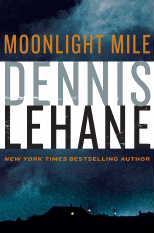Seth Godin, entrepreneur, author, public speaker and media expert, has made a decision of great significance and it is geared toward the publishing industry. He has decided that Linchpin, his 12th book, will be the last book he publishes traditionally. Here is an excerpt from his blog where he explains his decision,
Authors need publishers because they need a customer. Readers have been separated from authors by many levels–stores, distributors, media outlets, printers, publishers–there were lots of layers for many generations, and the editor with a checkbook made the process palatable to the writer. For ten years, I had a publisher as a client (with some fun self-published adventuresalong the way). Twelve bestsellers later, I’ve thought hard about what it means to have a traditional publisher.
Traditional book publishers use techniques perfected a hundred years ago to help authors reach unknown readers, using a stable technology (books) and an antique and expensive distribution system.
The thing is–now I know who my readers are. Adding layers or faux scarcity doesn’t help me or you. As the medium changes, publishers are on the defensive…. I honestly can’t think of a single traditional book publisher who has led the development of a successful marketplace/marketing innovation in the last decade. The question asked by the corporate suits always seems to be, “how is this change in the marketplace going to hurt our core business?” To be succinct: I’m not sure that I serve my audience (you) by worrying about how a new approach is going to help or hurt Barnes & Noble.
My audience does things like buy five or ten copies at a time and distribute them to friends and co-workers. They (you) forward blog posts and PDFs. They join online discussion forums. None of these things are supported by the core of the current corporate publishing model.
Since February, I’ve shared my thoughts about the future of publishing in both public forums and in private brainstorming sessions with various friends in top jobs in the publishing industry. Other than one or two insightful mavericks, most of them looked at me like I was nuts for being an optimist. One CEO worked as hard as she could to restrain herself, but failed and almost threw me out of her office by the end. I’d be lying if I said I wasn’t heartbroken at the fear I saw.
All a long way of saying that as the methods for spreading ideas and engaging with people keep changing, I can’t think of a good reason to be on the defensive. It’s been years since I woke up in the morning saying, “I need to write a book, I wonder what it should be about.” Instead, my mission is to figure out who the audience is, and take them where they want and need to go, in whatever format works, even if it’s not a traditionally published book.
So Seth Godin, a man famous for predicting trends, analyzing market strategy and understanding the psyche of the modern American reader/buyer/seller is taking a formative stand and bravely going in a new direction with his work.


 It’s a sequel to Gone Baby, Gone and it takes place in 1997, where the once missing Amanda McCready is now sixteen and a straight A student, who wants to leave her irresponsible mother and Dorchester neighborhood, but then she goes missing again…
It’s a sequel to Gone Baby, Gone and it takes place in 1997, where the once missing Amanda McCready is now sixteen and a straight A student, who wants to leave her irresponsible mother and Dorchester neighborhood, but then she goes missing again…